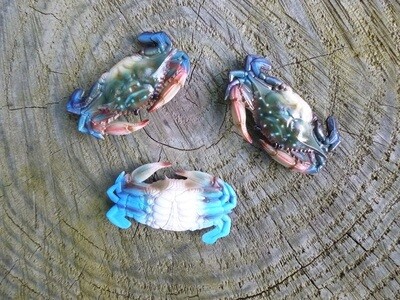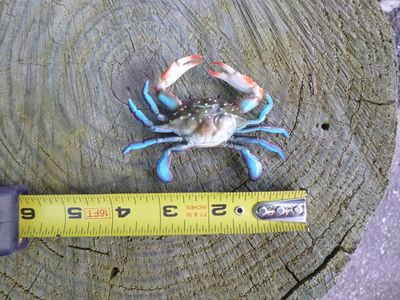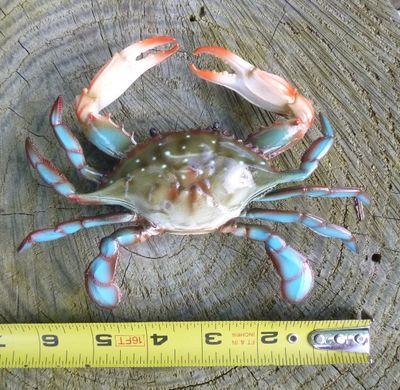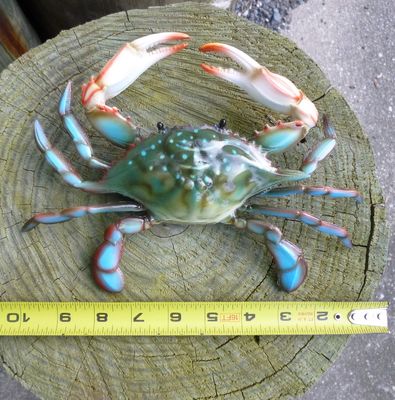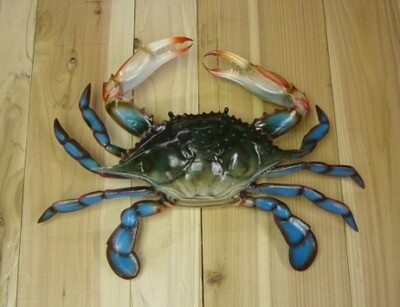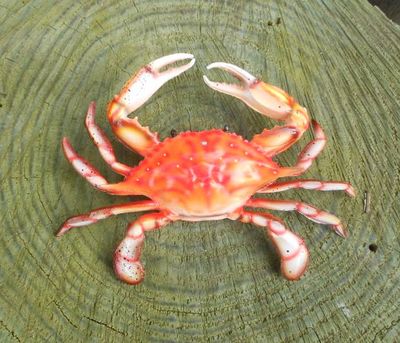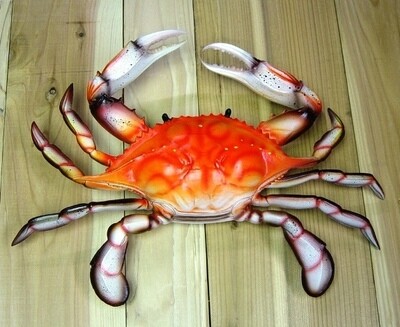Plastic Crabs
These decorative crabs make a great addition to your nautical theme. Lifelike Maryland blue crab replicas look great hanging on the wall of your home, restaurant, or business. Hang these plastic crab ornaments with some fishnet and seashells, or place them with other beach décor. Choose from natural blue (live) or red "steamed" crabs that look like they just came from a crab house! They are painted to look just like Maryland blue crabs, from the claws to the underside. Each crab ornament comes with an attached wall hanger. Please note these are not toy crabs - they are hard, ornamental crabs with pointed edges (just like a real crab). They're made for displays, crafts, and nautical themes.
Note: The size is the measurement across the outside of the legs, not the body of the crab.
